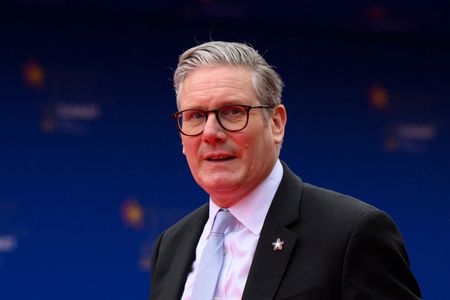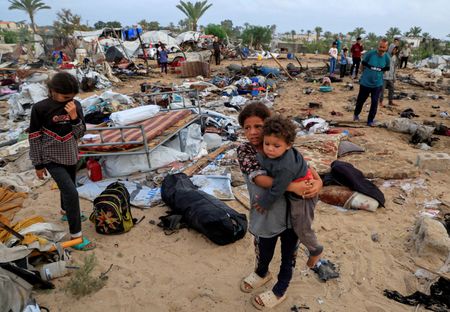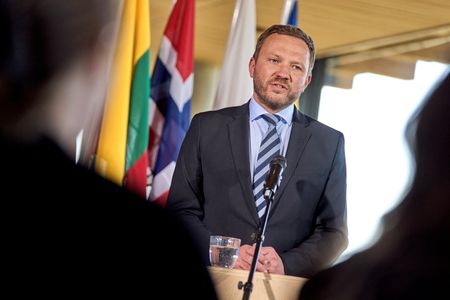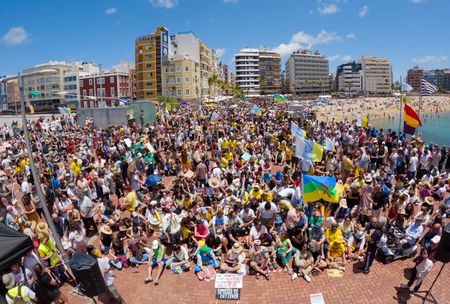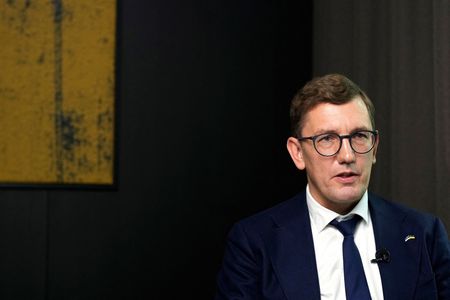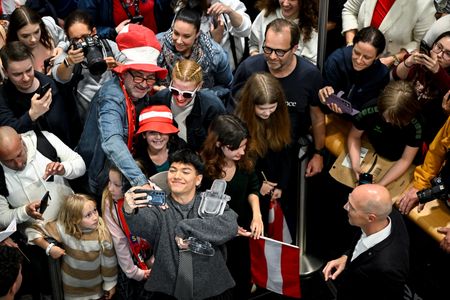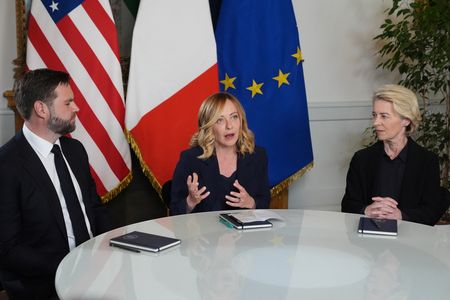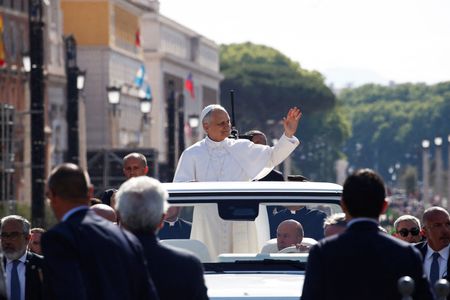By Kate Holton
LONDON (Reuters) -Britain hopes to secure a reset deal with the European Union on Monday that would boost defence and security cooperation, and smooth the arrival of people and also food into the bloc, its chief negotiator said on Sunday.
Prime Minister Keir Starmer will host EU leaders in London on Monday in the most significant effort to reset ties since Britain left the EU in 2020 after four years of acrimonious divorce talks.
Wary of reigniting domestic battles over Brexit, and with its chief campaigner Nigel Farage a fierce political rival, Starmer is trying to secure a deal that will include tangible benefits for Britons to offset the concessions it will need to make to Brussels.
Britain wants the deal to include the use of faster e-gates for British travellers at EU borders, reduced red tape on food trade, and a new defence and security partnership that could allow British companies access to an EU loan scheme worth 150 billion euros ($167 billion).
It also hopes to agree closer ties on energy and carbon markets, better cooperation on migration smuggling gangs, the mutual recognition of certain professional qualifications, as well as access for touring artists and data sharing.
In return, it is likely to agree a limited youth mobility scheme to enable young people in Britain and the EU to live and work in each other’s countries, a British return to the Erasmus+ student exchange programme, and a longer-term agreement on fishing.
While the outline of the defence and security pact is likely to emerge on Monday, it remains unclear how many other elements will be signed off by then. EU ambassadors were due to meet to discuss the final terms on Sunday.
“We want a deal that makes a difference for the British people,” Britain’s EU negotiator Nick Thomas-Symonds, told Sky News.
“What we are looking to deliver tomorrow is a deal that is going to be good for jobs, that’s going to help to secure our borders, and it’s going to help to lower household bills.”
Polls show that a majority of Britons regrets voting to leave the EU in 2016 and, while there are political risks in moving closer to Brussels, the government says Russia’s invasion of Ukraine and uncertainty around U.S. protection for Europe mean new alliances are needed.
The government has also made growing the economy its number one priority. A refusal to rejoin the EU’s single market and customs union will limit the economic impact, but easier and faster trade across UK-EU borders will help.
Starmer’s government, which has struggled since it was elected last July, also secured a free trade deal with India earlier this month and persuaded U.S. President Donald Trump to reduce tariffs on some sectors.
($1 = 0.8958 euros)
(Reporting by Sarah Young and Kate Holton; additional reporting by Philip Blenkinsop;Editing by Gareth Jones and Barbara Lewis)

